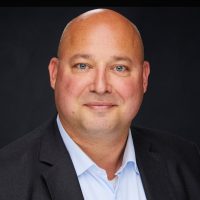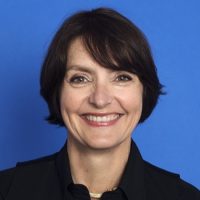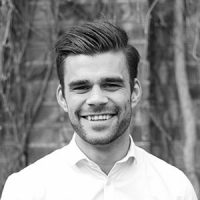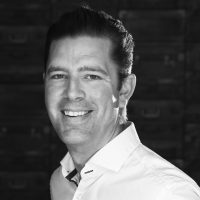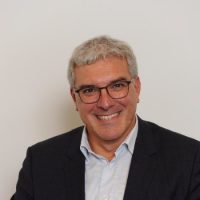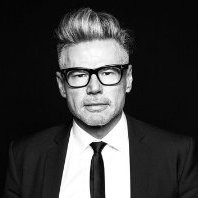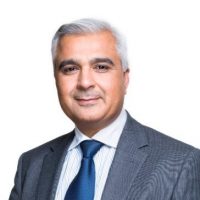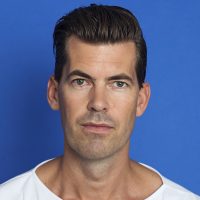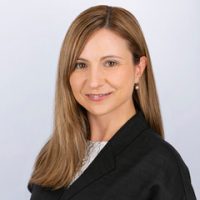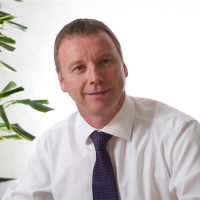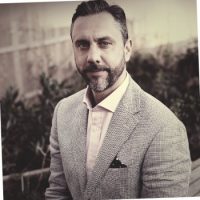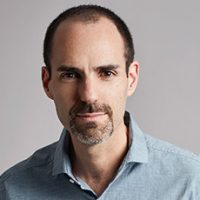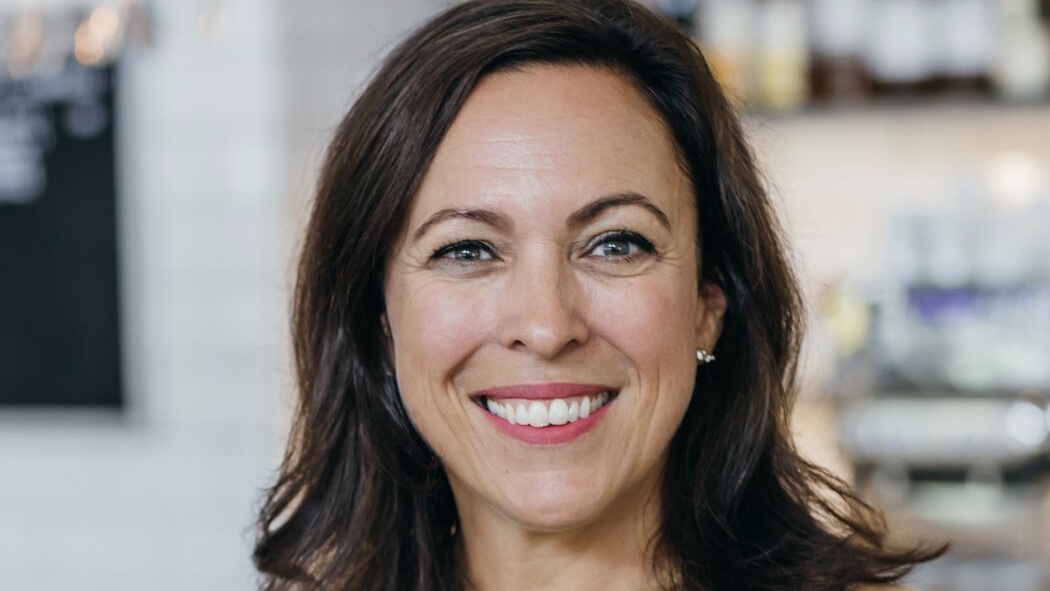With a degree in international politics, InterContinental Hotel Group’s Gil Mulders, now taking a seat on the new HSMAI Region Europe’s Advisory Board for People & Culture, was on the fast track to a career in diplomacy. Luckily for the hospitality industry his plans took a different direction during a trip to America, ending in international hotel learning and development – and in the service of HSMAI’s membership.
IHG’s Head of Learning in Europe, Gil Mulders sports a long and varied career in hospitality, as Front Desk Manager, then Training Manager at Crowne Plaza Brussels, Reception Manager at QMH UK Limited, Guest Relations Executive at Hilton Worldwide, and Assistant Night Manager at Europe InterContinental Brussels, as well as eco tourism in America – but more on that further down the road.
He holds a Master in International Politics from l’Université libre de Bruxelles, and contributed to IHG’s best in class HR team which won several awards, such as Aon – Best Employer Global in 2017, the same year that his team was appointed IHG’s Chief Learning Officer – Learning Elite Organization. Add the JobCrowd Awards – Best Company in Training / Best Graduate Programme in Hospitality & Leisure to that, as well as the UK Top Employer 2018 award, and you get the idea.
“Collaborating is the future, so we are very pleased that Gil, with his extensive background from HR, learning and development is now joining our new Advisory Board for Culture & People. One of the future challenges will be how to attract enough talent in the hospitality and travel related organizations, so this new Advisory Board will be very important for all of us moving forward,” says HSMAI Region Europe’s CEO and President Ingunn Hofseth, adding:
“In addition The Culture and People Advisory Board will be set up in relation with the two new initiatives that are now finalized for Europe: Winning for Customers – The Service Pledge program and the Mike Leven Mentor program.”
A global presence
Fully aware that we needn’t inform experienced hoteliers of the InterContinental Hotel Group’s standing in international hospitality, with its 5341 hotels and 809,889 hotel rooms worldwide, employing a whopping 375,000 people across almost 100 countries. Among the group’s brands we find hotels and chains such as Regent Hotels & Resorts, InterContinental Hotels & Resorts, Kimpton Hotels & Restaurants, Hotel Indigo, Even Hotels, Hualuxe Hotels and Resorts, Crowne Plaza, Voco, Holiday Inn, Holiday Inn Express, Holiday Inn Club Vacations, Holiday Inn Resort, Avid, Staybridge Suites and Candlewood Suites.
Among these you will find 1003 hotels in EMEAA (Europe, the Middle East, Africa and Asia), which is where Gil Mulders comes into the picture, heading the hotel group’s European learning and development operations.
“So without further ado, Gil Mulders, if I were to ask you what you consider the current and future challenges in the travel and hospitality industry’s field of culture and people, how would you respond?”
Need to attract millennials
“The greatest challenge, in terms of the hospitality industry’s work with culture and people, lies in resourcing the right people, as the industry suffers under an image labelling it a transient industry, people look up for a couple of years’ employment and then move on to something perceived as a little more ‘exciting’ or better paid. Changing the industry’s image into that of young candidates’ industry of choice is an obvious challenge and if we don’t solve this we will soon experience problems finding the right people. Spending a great deal of my time in hotel schools, I meet a lot of hospitality students; although quite a few millennials harbor expectations that they’ll be able to kick off a start-up of their own, at least half of them are very keen on launching a career in a large and stable company. And then there are those who originally planned to work in, say, the finance sector, and for one reason or the other end up studying hospitality. For the most part, however, they simply have a passion for such a lovely industry as our own, an industry dead set on making people happy when they’re away from home, which in itself is quite an attractive trait,” he replies.
“I’ve noticed that you label yourself more of an architect than an implementer or a problem solver. Would you care to expand a little on that?”
“Well, it hasn’t always been like that. During the first half of my career I actually liked to be a problem solver, to put everything in its right place, right through to the execution itself, which is absolutely wonderful and most necessary, but now that I have a team of people, including great learning and development experts, my role is a different one. I just want to make sure that I make their lives as easy as possible, break any barriers and build processes and structures than enable them to add maximum value in the field of L&D in hospitality as such and in IHG. In turn, ensuring I have the right people at the right place and focusing on the right things helps me making sure that working with L&D in IHG is easy, straight forward and enjoyable.”
“It’s all a question of making sure the company has all the required tools readily available, as well as the right delivery channels for learning and the right people, of course. With all these evolving and adaptable factors in place, my job is actually done” Mr Mulders adds.
“You have created early career programs to accelerate the development of an ever growing millennial generation of Future and Aspiring Leaders within IHG. Firstly, could you elaborate a little on the industry’s need for recruitment and secondly, what did you learn from making these programs available to the up and coming generation of hospitality professionals?”
An exclusive career program
“First of all, over the years I have noticed that there are a lot of young and aspiring leaders in the hotel schools as well as in our own hotels, who haven’t been given the opportunity to grow professionally, and I’m not playing the blame game here, the problem was that the structure simply wasn’t there,” Gil Mulders says, reaffirming his architectural disposition. “So what we needed was to put mechanisms in place that enabled us to help accelerating their development in a way that leverage their strengths, not only focusing on their development areas. So ten years ago we created a graduate program. At the time I was responsible for the BeNeLux countries only, so the program was restricted to them, and I took an immense joy in watching the candidates grow, but before long the program expanded to Europe, at which point we renamed the program IHG Future Leaders, in the wake of much internal lobbying, ensuring that the program provided added value for the partaking hotels. Admittedly the program is very elitist, in the sense that out of over 1000 applicants only around 15 qualify every year. We’re talking la crème de la crème here, of candidates churned through a series of assessments and development centers that help us create a foundation for these 15 prospects as the general managers and functional leaders of tomorrow. They need to be internationally mobile, fluent in English and other languages and, of course experienced hospitality practitioners. We invest a lot of money and resources in these people, but the upside is that they’re staying with us for long run.”
According to Gil Mulders IHG also provides a less ambitious program, called IHG Aspire which is an extremely flexible program not requiring international mobility. “It is accommodated for the just as great people among our employees who for different reasons, including some independent of their own choice, are less internationally mobile, but still want to advance to general manager, for instance. It is less intensive and includes a lot of coaching and on-the-job development,” he explains.
Informality unheard of 25 years ago
“Subjects such as culture, people and HR have changed drastically since I graduated from university myself, especially over the last decade. When I first entered the hospitality industry it felt a bit like arriving at a military boot camp, in terms of how hotels were run on the ground, on which the general manager was quite the god, truth be told, as opposed to today, where we have a so much more democratic approach to employee management. Our co-workers are much more involved in operational management of the hotel, so we’ve moved away from the instructing, towards a more collaborative take on these things. Most employees – and managers – have survived this transition brilliantly, but you have to remember that not all of our co-workers are millennials. We have both Gen Y and X employees, and baby boomers, even, still active in the business, so we have to make sure that they all carry out their leadership in accordance with company lines, and there are ways to ensure that,” says Mr Mulders, adding:
“Our industry has moved in a much more democratic direction, even in the way we treat our guests. We are closer to them than we were when I first started out, and they really appreciate that. In some of our brands, for instance, we would address our guests by their first name, which is something that would have been unheard of only 25 years ago.”
“What does it take to become a successful executive in today’s travel and hospitality sector?”
“Well, there’s no magical recipe, no secret, but I’d say that staying focused, stubborn, in terms of what you want to achieve, and you have to show a good degree of flexibility in order to get there. Be inflexible when it comes to where you want to go, but flexible with respect to how to reach that goal,” he says.
“From what I understand your workdays must be choc-a-bloc with responsibilities, so what made you accept as seat on the Advisory Board?”
Happy for the opportunity to give back
“You’re right insofar that my days are very busy and time is indeed very precious, so of course I had to give the offer some serious thought, I already spend my time exactly where I want to be, and I am, after all, very passionate about people development and love meeting colleagues in different functions throughout the industry. Certainly I am an HR, learning and development specialist, but first and foremost I am a hotelier, curious about all goings on within the industry, eager to develop myself in that respect. And granted that is a highly selfish motivation, but I also love to give back. After all, I am 47 years old, with a 25-year-long experience in various positions, and I think this is a good time in my career to share the modest amount of experience that I’ve acquired, to feed the conversation and also to coach and be coached, which constitutes the proverbial win-win situation, if ever I saw one.”
When asked what a typical day at work looks like, Gil Mulders starts to laugh:
“Fortunately there is no such thing,” he replies, still laughing. “I consider myself very lucky in that respect. If it did, my work would have been a lot more boring than what is the case. Had you asked about a week, on the other hand, I probably spend two to three days traveling, which I love, by the way – either between Paris, where I am based, and our corporate office in Denham or to our hotels. Most of the time it is either to deliver training or to support my team’s delivery and meet with general managers and other colleagues throughout Europe. Occasionally in other parts of the world, too. And then, of course, there’s the emails, like for everyone else, but I try to make a habit out of sending as few as possible, which results in few replies, obviously. Also I try to make some time to be creative and contemplate the future. Being a conceptualizer and architect by nature I always try to take a closer look at where we can improve. Finally I have 14 colleagues in my team, which clearly takes a lot of my time, which includes coaching, but again: also being coached.
Hospitality over diplomacy
As already mentioned Gil Mulders holds a degree in international politics, which normally wouldn’t end in hospitality, but there’s an explanation for that:
“In younger days I harbored a strong desire to work in the field of international relations and imagined myself working in an embassy, which would offer lots of opportunities to travel, meeting people and experience other cultures. The international lifestyle, if you can call it that, appealed to me at the time and still does. So my first ever position was as a trainee in the European Commission in Belgium, and being born in Brussels that made a lot of sense. The work consisted of a lot of research relating to various directives and so forth, but I soon came to realize that it wasn’t really for me. So after six months I flew to California to visit a friend about to establish a start-up called Eco Travel Services, which I found immensely interesting, so I accepted a position there, which involved going from hotel to hotel, assessing their eco-friendliness by way of number of leaves in stead of stars. Before long I realized that working in the hotel industry was exactly what I had had in mind all along, and the rest, as they say, is history. But I still devour news on international politics,” he says.
“What do you consider to be your personal strengths?”
“That’s an interesting question. I fancy myself a good listener, more than most, actually, which helps me understanding people and reading situations fairly well. Considering that I’m in the line of training, one would typically think that I’m an extrovert, but in fact I am quite the opposite, which is to say an introvert, which is something I consider to be a strength, because it enables me to relate to a person at a much more personal and deeper level. I prefer to think everything through, so a spontaneous interview, like the situation we’re in now, is actually quite a challenge for me. But also I generally relate well to people, which is reflected in the feedback I get from people I coach, who tell me that they love being coached by me.”
No fan of the cult of personality
“Mr Mulders, if I may be so bold as to ask, is there anyone in particular you’ve been looking up to?”
“I admire the Dalai Lama very much,” is the immediate response, which is very interesting, as the chair of HSMAI Region Europe’s Sales Executive Advisory Board, Nordic Choice Hotels’ Anant Vithlani offered exactly that reply, no more than a week ago. “Well, what can I say,” Mr Mulders responds, “Dalai Lama is such a strong personality, whose level of wisdom I can only dream of achieving. Of course there are a few people in the industry that I admire, too, but truth be told I’m no big fan of the cult of personality phenomenon, and I wouldn’t automatically say Steve Jobs or Richard Branson. While they have indeed achieved a lot, we have to remember the teamwork behind their achievements, which is directly linked to what I try to instill in everyone I coach.”
“I have only one last question for you before we wrap this up. Neuro-Linguistic Programming is a bit of a spare-time pet project, as I understand it. Could you tell us what it’s all about?”
“It is hard to define, but firstly NLP is a science based on empirical data on the impact that your neurology, i.e. your nervous system, has on your behavior and, ultimately, on your surroundings. So the principles of NLP are that you’re very much in control of your mind and, therefore, in control of your results. The linguistic side of it is all to do with utilizing people’s verbal and non-verbal language as a means to access their neurology and thereby assisting them in reprogramming themselves, Gil Mulders explains, which in turn explains his successes in personnel training. Needless to say, HSMAI Region Europe CEO and President Ingunn Hofseth is thrilled to be seeing him at the upcoming Advisory Board meeting:
“In fact we will already assemble in London in less than two weeks, including a cross-disciplinary Advisory Boards gathering during the HSMAI Region Europe Leadership Day on September the 12th,” she says, with expectations held high.
For more information about IHG, see here.
Photo: IHG Head of Learning Europe, Gil Mulders, member of HSMAI Region Europe’s People and Culture Advisory Board. Photographer: Joanthan Abensur.





